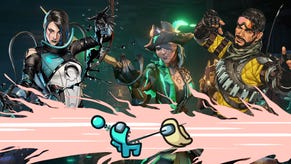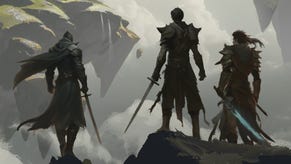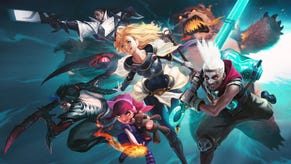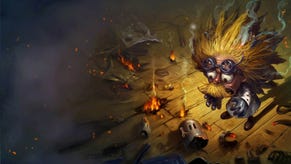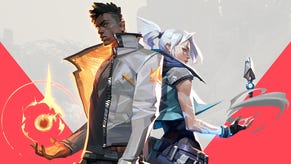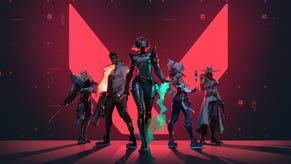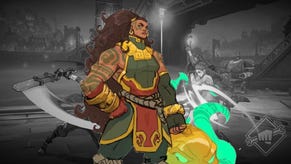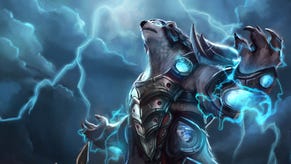RiotLyte Asks: What Is League Of Legends' End Game?
What are you working towards?
While out at Riot HQ in Los Angeles, I was able to grab a bit of time with Jeffrey Lin, Lead Game Designer of Social Systems. He's probably most famous for his work on the player behaviour side of League of Legends [official site] but his job encompasses pretty much everything outside the core game experience – anything from the new champion select experience to helping work out what the League of Legends "end game" should be. Read on as we talk about end games, inspirations and how a non-existent nerf sent a champion's win-rate plummeting...
*A few of these questions I asked as part of a group panel with Greg Street and the rest were as follow-ups afterwards.*
Pip: When the champion design teams are looking at areas to improve or focus on there are ways they can pick their targets or prioritise [win rates, player responses and so on]. How does it work for social systems? How do you pick your targets?
Jeffrey Lin: You might call our Social Systems team just the "Systems" team or "Features" team because we're really focused on the League of Legends experience outside of the core gameplay. But, in modern gaming, the experience outside of a core game is a very social experience that crosses many mediums - web, mobile, experiences like chat and streaming are everywhere and a compelling social experience around a game can be as important as within it.
There's two core strategies we use to pick our target areas of focus. (1) We often look to other games (especially games in other genres) to see where innovation is occurring. For example, is a game doing a really cool quest system, or a crafting system, and could that be incorporated in a natural way into League? (2) Alternatively, we focus within on our own research and data and try to see what areas of the game we could try something innovative that no other game has tried before. In the past few years, we've leaned slightly more on the first approach, but this year, we're really urging teams to push the envelope and try their hand at riskier innovations.
What are the main points of focus right now?
Jeffrey Lin: I've been working pretty heavily with a design team on a few simple questions lately: What does the end-game of League of Legends look like? How does a player build a legacy in League of Legends? We're not happy that our current Ranked Solo/Duo Queue is the "end-game experience" that most players will have, and a very small population ever sees the lights of the LCS. Games like World of Warcraft have an extremely rich end-game raiding experience that most players can aspire to experience and enjoy--what does a truly top notch end game experience look like for a MOBA? That's something we'd like to try to answer one day.
Also, we've been asked a lot recently about the new player experience in League and we agree, we're not known for a high quality new player experience. This is something a lot of designers and Rioters feel passionate about, but it's a question of timing and priorities. Even with a poor new player experience, the game is very popular and growing and as our director Greg Street mentioned, our current focus is on making our current and veteran players happy and engaged and excited to log in everyday. We want to take care of these players first!
Are there any unexpected outcomes of the [enormous] pre-season patch that need special attention?
Jeffrey Lin: Game design is really funny sometimes when it comes to balance or game changes. For example, there was a time when we nerfed a particular Champion and saw the win rate of the Champion plummet a few percentage points. However, we found out after that the nerf didn't get implemented into the patch. The simple fact that the patch notes described a nerf to the champion had a weird psychological effect on the play patterns of players and resulted in a drop in win rates. When we're releasing huge pre-season patches that have hundreds of nuances and interactions, we are very careful to how "valid" the data is whether it's from players, social media, or even in-game data! So yes, there are almost always unexpected outcomes with patches, and we're always surprised by the lessons.
You've spoken about Riot collaborating with academic research and that papers will start appearing in 2016 - how does that work? Does Riot reach out to universities if there are interesting collaborations to be had or do researchers approach you? Also how open can you be with data?
Jeffrey Lin: Very few private companies collaborate with the academic community, so awareness was a two-way problem. We decided to start by giving a few talks at industry and academic conferences about our research, and discussed opening our doors to any interested universities around the world. We then decided to go a bit more tactical, and visited a few dozen top universities around the world and met with professors and their labs and discussed the research that is possible with League of Legends. Interested universities then send us a proposal for collaboration, and a Riot research team vets all the proposals and chooses about 10-12 collaborations a year.
We're extremely open with the data with a few caveats that adhere to ethical standards at most universities; for example, no data can be presented or used that can specifically identify a player in the game. In other words, we never give data that would allow researchers or institutions to reverse-engineer and pinpoint a specific League player and their real life information. As a former academic, I'm really excited about what these collaborations mean for the greater good of society. For example, one of our latest collabs with MIT provided new insights into team chemistry and how well teams gel and work together--studies like this could have implications in many other fields outside of games.
In terms of social systems beyond the game, what's your involvement? For example do you have a say in how shoutcasters and analysts present information for an audience or with social engagement ideas like hashtag win for Twitter?
Jeffrey Lin: Although I lead the design teams that create many of these social experiences for League, I personally am not as involved on those types of social engagement for eSports. We have a few teams and designers specifically working with eSports on those initiatives!
In terms of League of Legends, what is *your* end game? Perhaps it's an unfair question because LoL is a living game but if you achieve everything you have set out to do what does the game look and feel like?
Jeffrey Lin: We believe that League is a game that can go on for decades. We've shown our commitment to this end vision with the recent re-make of Summoner's Rift, and the new Champ Select and client update coming in the future. Although the core game of League is pretty fun, we think we've just scratched the tip of the iceberg when it comes to social experiences around League of Legends. One of our end-game goals for League is to give each match a meaning and purpose, and to give players more ways to show off their story in League. What have they accomplished, and what are the next goals in their League career? We don't celebrate accomplishments very well in League today, and we definitely don't do a great job of showing players what's their next goal as a player.
With regard to dynamic queue [ranked play is switching from solo or duo queuing to allow you to queue with any number of teammates up to a full five] the phrase "the benefits of grouping up will always prevail" caught my eye. League is obviously about teams but I was curious to know how you see the role of playing solo within the game? What is its importance and its function?
Jeffrey Lin: In the past year, we've really been trying to solidify what it means for League to be more like a sport. If we use soccer or basketball as an example, solo play is more about honing your mechanics and experiencing pieces of the full game. However, the core experience is always around the team game and that is where the star players excel and are thrust into the spotlight. We know that in League, the experience of a full match with a group of friends is the best experience. It's the most engaging, the most thrilling and rewarding experience, even with no other systems or incentives in place. But, for the past little bit we've been researching the many reasons why many players play (or prefer!) solo. For some, it's an issue of time; for others, an issue of not finding friends or teammates of similar skill. We have this huge list of potential barriers to playing with others in League, and the question is how many of these are solvable so that more players naturally prefer to play with friends instead of playing solo.
Unless you're a League of Legends prodigy you'll likely have a main champion or a set of mains. How do you encourage people to move outside their comfort zone or show them other characters they might like?
Jeffrey Lin: One of the teams in the most recent Thunderdome [that's Riot's internal hack-a-thon] actually tried to build an engine to recommend similar champions and it went through a bunch of social variables as well. If you like a bunch of ADCs like this, your friend also likes ADCs so what are the champions your friend has tried that you have not tried? So we have done a lot of research on that now and from that Thunderdome we know it's potentially very effective [if] that's the way we want to branch you out. We don't quite know what that means in a game feature or system yet but there's a lot of potential there.
Can you tell me a bit more about how far you've gotten with that system or what you've tried so far?
Jeffrey Lin: Unfortunately, we've just done a proof of concept of what we would recommend players to branch them out to new champions or positions; however, we haven't tested anything on a live server yet. One of the prototypes we're considering is customizing the Free to Play Rotation of champions so that there's a standard set, but an additional few that are catered to every player's play patterns.
In terms of players working together have Riot investigated anything like a buddy system where a high ranked player can offer their services to a newcomer?
Jeffrey Lin: The concept of a Coaching or Mentoring System has been mentioned a few times over the years, and is a very popular idea. Some recent Chinese MOBAs have done decent executions of this, so there are definitely some ideas out there that have proven this can work. It's not something we're actively brainstorming or thinking about, but we think there's potential here.
Lastly, when making big changes as with dynamic queue how do you approach feeding that information to the community and managing expectations/fear/anger?
Jeffrey Lin: We're still learning, haha. As much as possible, we try to be as transparent as possible with players and let them know what's happening almost as soon as it's decided and sometimes we reveal information a bit too early and have to make changes. As the community evolves, we're just going to have to roll with the punches and do what we can to improve communication over time.
Thank you for your time.

